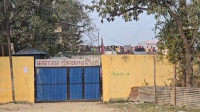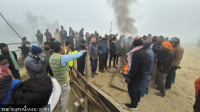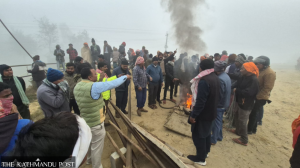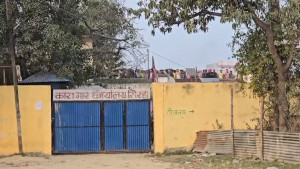Madhesh Province
Three generations without citizenship in Saptari
Statelessness continues to marginalise an entire Dalit family, leaving them without access to education, healthcare, or state recognition.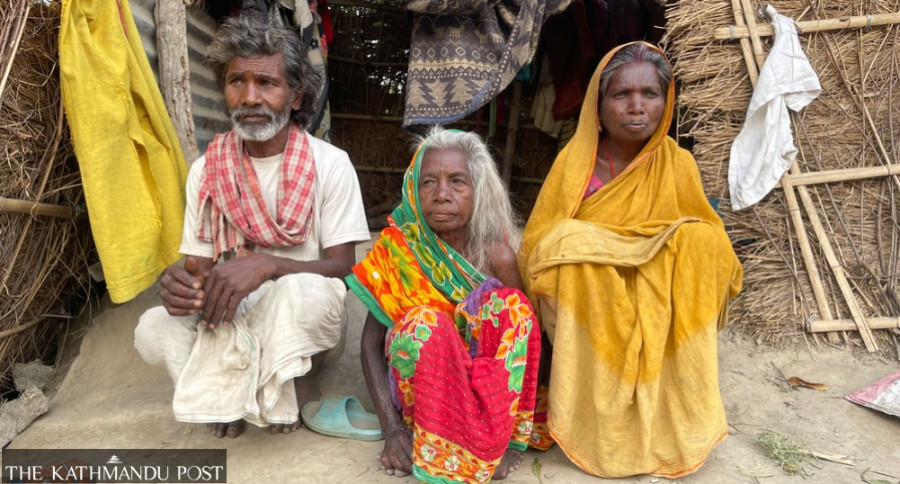
Bidyanand Ram
75-year-old Satodevi Sada, an inhabitant of Shambhunath Municipality-3, Kachandaha, lives with her son and granddaughter, but none of them possess Nepali citizenship. Sans the official document to prove her national identity, the family has remained stateless for three generations.
Satodevi was married to Dhuthar Sada of Kushaha in Dakneshwori Municipality-4, who also lacked citizenship. Following his death 25 years ago, she returned to her maternal home and has lived there since. “He tried many times to obtain citizenship, but no one helped,” Satodevi recalled. “Even on his deathbed, he worried about dying without getting citizenship.”
Her fears now echo her late husband’s. “I worry I too will die without ever being recognised as a Nepali citizen,” she said. Her son, daughter-in-law, and grandchildren also lack citizenship, leaving them without any formal connection to the state.
Living on unregistered land, the family has no documents to support a citizenship application. “Being Dalit and stateless means the political leaders don’t care about us,” she lamented.
Her son-in-law, 59-year-old Magain Sada, is also without citizenship. Originally from Madhupatti in Surunga Municipality-4, he moved to his wife’s home after marriage. As his parents also lacked citizenship and passed away long ago, Magain has never been able to apply for one himself. His wife, Urmila Sada, 55, has likewise been unable to obtain citizenship.
This has left all six of their children without birth registration. “Because I don’t have citizenship, my daughters Lalita (24), Somindra (22), Sangeeta, and Jitani (15), and sons Govinda (17) and Deepak (16), could not be registered at birth,” Magain explained. “They couldn’t go to school, and now they are facing serious problems without citizenship.”
The family survives through daily wage labour. “We’ve managed to scrape by, but I just wish at least my sons could get their citizenship,” he said. “But there’s no sign of it.”
Ward chair, Naveen Kumar Chaudhary, the elected representative of Satodevi's locality, said the absence of any documentation has made it impossible to recommend the family for citizenship. “They are entitled to it, but without legal proof, we cannot proceed,” he said.
Chief District Officer Bhola Dahal confirmed that the state cannot issue citizenship without a legal basis. “If they can establish eligibility through any lawful means, we will issue the citizenship,” he said.
Until then, Satodevi and her family remain invisible in the eyes of the state—locked in a cycle of generational statelessness with no immediate way out.




 9.56°C Kathmandu
9.56°C Kathmandu

